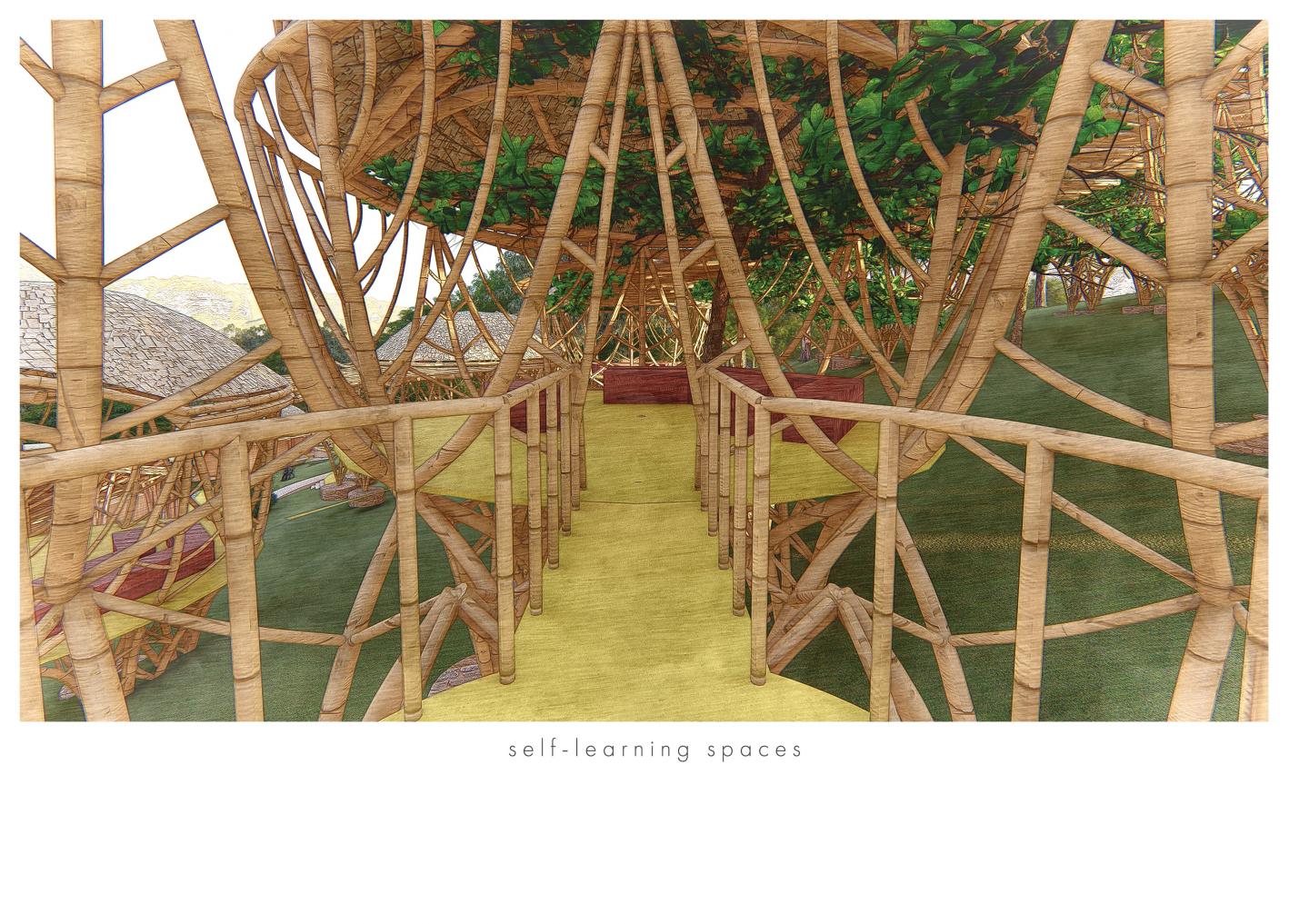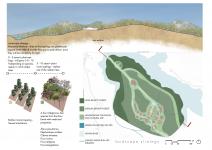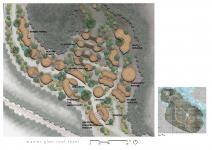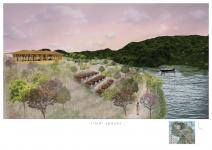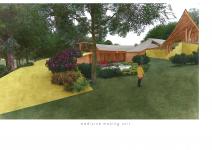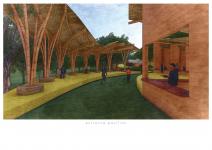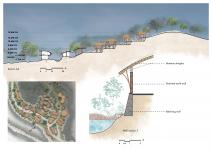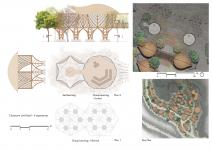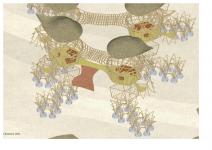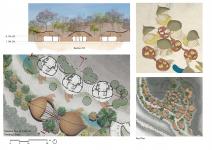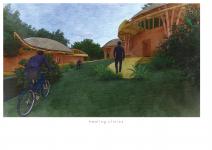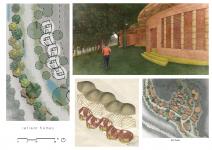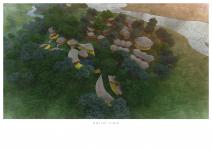This project explores the reinterpretation of nature worship through man’s re-association with sacred groves to revitalize the idea of co-existence with the natural biosphere.
Sacred groves are protected natural forests by ethnic groups. The idea of ‘sacred’ is attached with the intention of carrying forward the feeling of respect towards the flora and fauna, throughout generations. However, over the last few decades there has been a drastic decline in the number of sacred forests in India due to deforestation, commercial activities, urbanization, etc.
Ethnic groups or tribal communities are forcefully made to move away from their traditional occupations which are in harmony and balance with Mother Nature. The Kani tribal community residing in parts of the Western Ghats of Kerala and Tamil Nadu, is one such group, with tremendous knowledge about ethnomedicine.
Ethnomedicine makes use of leaves , roots and other plant parts to cure ailments without using chemicals. However, since some of these plants are patented by powerful companies, they do not have the right to grow, use or sell these herbs. They are forced to take up jobs like rubber tapping, manual labor, etc.
This project looks at bringing back the lost ‘sacred’ traditions of the Kani community, to create a space where there is ‘nature worship’, but in a modern context. A space where traditional knowledge is relevant to present times. A space where community gathering, teaching, healing, learning, making and selling of an ancient tradition is recreated.
Kani-kaav, is a possible reality for the Kanis where they become the masters of their own place. The materials used in the project are the same materials used by the Kanis in building their own houses. Hence, this proposition not only makes use of local craftsmanship and local materials, but is also cost-effective. The aspiration of the Kanis to push themselves into the modern world while retaining their strong roots, is expressed through the architectural crafting and design.
2020
0000
Crucial Research Data :
Sacred groves in Kerala have declined from over 10,000 to 600 in the last 60 years. The Forest zone is at present faced with the danger of monocropping and loss of tribal culture and indegenous livelihood. 92.16 percent of India’s rubber cultivation lies in the state of Kerala. Scientists have linked rubber monoculture to reduction in water reserves, soil productivity and biodiversity in South-East Asia.
According to 2011 census there are 24,000 Kanikkars, living in several districts of Kerala and Tamil Nadu. A total of 174 medicinal plants belonging to 69 families are identified which have been employed by the tribal community for the treatment of various ailments. In 1995 the Kanis were forbidden from selling or growing 'Arogyapacha', one of their most powerful herbs.
Project Data : Overall Site Area- 23 acres; Built - 5178 sqm; Open - 3594 sqm; Remaining site area - Afforestation using Indigenous Flora.
Professors (Mehul Patel, Nagaraj Vastarey, U Seema Maiya and Anup Naik)
